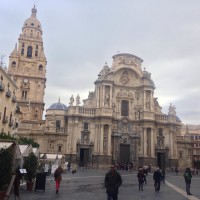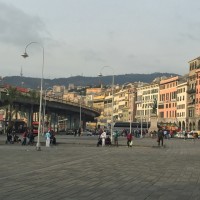The URBACT funded network supported by Eutropian looks into how digital, social media and user generated content can improve today’s urban management in European cities.
Interactive Cities is a cutting-edge project aimed at exploring how digital, social media and user generated content can improve today´s urban management in European cities, whatever size. This challenge will be tackled in two ways. Firstly, as an opportunity to redefine and deepen the concept of citizenship and civic engagement today, providing a path to spark cohesion, commonalities and shared value as well as increasing sense of place. In other words, making the most of the new channels to revisit the relationship between the individual and the local community in the digital era. Secondly, as a way to improve the quality of public services, in terms of efficiency and transparency, and even widen the current service chart provided by local authorities.
Interactive Cities will focus not only on the technological side but also on how this kind of innovation can be concretely useful for local authorities and urban residents, promoting better urban governance, citizen participation and economic growth.
The international cross-learning on this issue will be organised into three main sub-themes: i) Communicating the city as an attractive tourist destination strengthening its image both locally and internationally ii) communication of business promotion strengthening the city’s conditions through the support of local companies, both existing potentially new ones iii) communicating urban development by making understandable to a wide audience often very complex technical matters, balancing the involvement of inhabitants in the decision making process and explaining why plans have been approved by the administration.
[tribulant_slideshow gallery_id=”7″]
The URBACT Action Planning Network Interactive Cities builds on local needs and capacities to use social media and to develop new tools for better urban collaborations. The cities involved in the Network look into the opportunities of using social media to improve the governance of urban spaces, resources and services. By launching new platforms, applications or channels to enhance communication between administration and citizens or enabling a better use of technologies and solutions already existing on the market (such as social media platforms and apps with relevant urban functions), the project aims to help participating cities develop a local ecosystem of social media-based tools in order to better respond to challenges. Interactive Cities will compare strategies adopted by different European cities in the use of social media for institutional communication, as well as the use of open datasets for the creation of urban apps made by independent developers or by the public authorities themselves. Highlighting the city as a hub for creative exchange of contents and information among people is one of the main objectives of the project which will start from the strategies currently adopted by the Network’s partners in order to make them more efficient.
Interactive Cities aims to underline that the role of social media and digital tools in municipal communication is by no means limited to the transmission of messages by administrations. On the contrary, they potentially serve as bi-directional exchange channels , restructuring not only public communication but also the municipal governance models. Many of the platforms or digital tools that transform the way we live, experience, use and create cities are not initiated by local administrations but civic organisations, research institutions or private enterprises: however, they create important links between public, civic, academic and private stakeholders. The role of public administrations in this process is manifold: besides creating, commissioning or triggering, they also need to accommodate innovation and help all their partners in adapting to economic and social changes by redefining their digital strategies. This requires building eco-systems of digital communication and knowledge exchange: in order to improve public services and create an innovative milieu with the help of incubators, open data platforms, sharing and exchanging tools, hackathons or competitions, administrations need to help urban actors establish their networks.
facebook: https://www.facebook.com/interactivecities/
twitter: twitter.com/interactivecit
Interactive Cities Baseline Report
The Lead Expert team together with the Lead Partner are touring around Europe to visit the cities parts of the Interactive Cities network!
On 10-12 November 2015 the Kick-off in Genova took place with the first 6 partners of the project.



